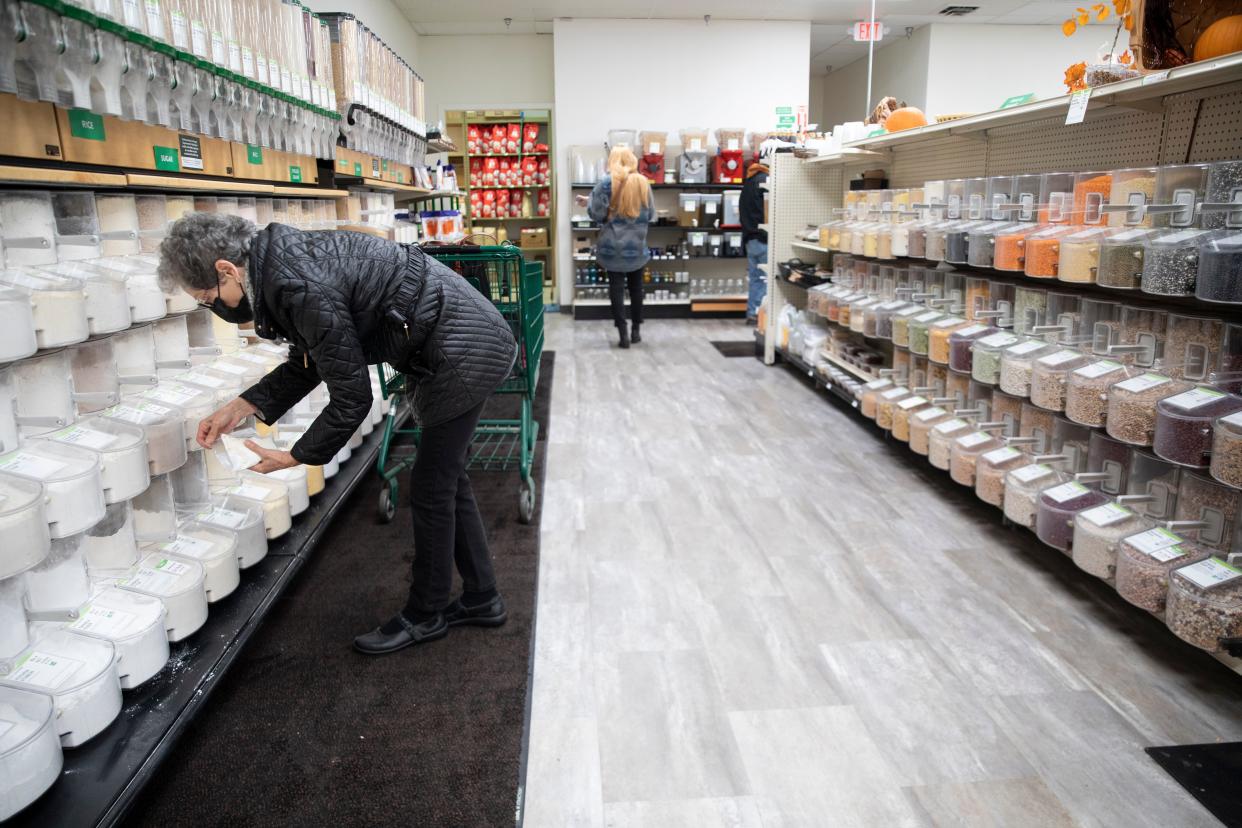Trio of bills would ban or reduce some plastics in Oregon

A trio of bills could soon make grocery shopping and dining out more sustainable.
Senate Bill 545 would allow consumers to use their own clean containers at grocery stores and restaurants.
SB 543 would ban the sale of prepared food in polystyrene foam containers, and the sale of those containers, as well as foam packing peanuts, in Oregon.
And SB 544 would create a program to reduce the use of single-use plastic food ware and packaging.
The public can weigh in on the proposals at a public hearing from 1-3 p.m. Feb. 14 in the Senate Committee on Energy and Environment, in Hearing Room B at the Oregon Capitol.
All three bills are sponsored by Sen. Janeen Sollman, D-Hillsboro, Sen. Michael Dembrow, D-Portland, and Rep. Maxine Dexter, D-Portland.
Reusable food containers at grocery stores
Earlier this month, the Oregon Department of Agriculture adopted rules that would allow customers to bring their own reusable food containers to grocery stores.
That’s not currently allowed under U.S. Food and Drug Administration rules, which Oregon has adopted, because of the potential for cross-contamination with pathogens or allergens.
But pressure to change state regulations began mounting following China’s decision in January 2018 to stop allowing many items from the U.S. to be imported for recycling.
Calls for a rule change intensified after the state cracked down on a program at First Alternative Co-op in Corvallis, which had for years been washing containers returned by customers and offering them for reuse.
“This makes Oregon’s new retail rule a national model for enabling reuse,” said Charlie Plybon, Oregon Policy Manager for the Surfrider Foundation, which campaigned for the change.
SB 545 would have required such a move if the rules had not been adopted.
But the bill also goes further, proposing to require the Oregon Health Authority to create rules by the end of 2023 allowing reusable containers in restaurants.
Polystyrene foam containers could be prohibited from restaurants
SB 543 would prohibit restaurants and other food vendors from selling prepared food in polystyrene foam containers.
The bill also would prohibit vendors from providing single-use food ware containers to consumers unless they are made from fiber-based material, have been certified as compostable, or are included in the statewide recycling collection list.
And it would prohibit the sale of polystyrene foam containers or packing peanuts, as well as food ware containing PFAS, in the state.
Polystyrene is commonly used for cups, plates and takeout containers. Products made with polystyrene are hard to recycle, and can break into small pieces that scatter in the wind.
Since 2019, Colorado, Maine, Maryland, New Jersey, New York, Vermont, Virginia and Washington have enacted polystyrene prohibitions.
PFAS, or per- and poly-fluorinated substances, are referred to as “forever chemicals,” because they don’t break down in the environment or human body. They are used in food packaging to repel grease. Growing evidence points to their negative health effects.
The bill would create penalties of up to $100 per day for serving food in foam containers, and up to $500 per day for selling or distributing foam containers or peanuts, or food ware containing PFAS.
Reducing single-use plastic food ware, packaging
In 2015, the Legislature enacted statewide goals of recovering 25% of both food waste and plastic waste by 2020.
Oregon didn’t meet either of those goals. In 2020, estimated recovery rates were 10.1% for food waste and 13.7% for plastic waste.
In 2021, the Legislature passed SB 582, which made major changes to Oregon’s recycling system. They included requiring covered producers to become members of a producer responsibility organization to ensure products are recycled.
Now, the Legislature is considering SB 544, which would require the Oregon Environmental Quality Commission to set up a program for source reduction of single-use plastic food ware and single-use packaging, and achieve 25% source reductions compared to 2023 levels by 2030.
Source reduction means eliminating waste before it is created by reducing or reusing materials.
The bill would require that at least 10% of the reduction be from elimination or the development of infrastructure for reusable or refillable products. And it includes civil penalties for producers that violate the program.
Both SB 543 and SB 544 are opposed by some of the biggest producers that would be impacted. They say the bills would impose costly requirements and delegate “unfettered authority” to the EQC to ban any type of plastic packaging.
Opponents include the Oregon Restaurant & Lodging Association, Oregon Business & Industry, American Chemistry Council, Western Plastics Association and American Forest & Paper Association.
Tracy Loew covers the environment at the Statesman Journal. Send comments, questions and tips to tloew@statesmanjournal.com, 503-399-6779. Follow her on Twitter at @Tracy_Loew
This article originally appeared on Salem Statesman Journal: Oregon bills would make grocery shopping, dining out more sustainable

